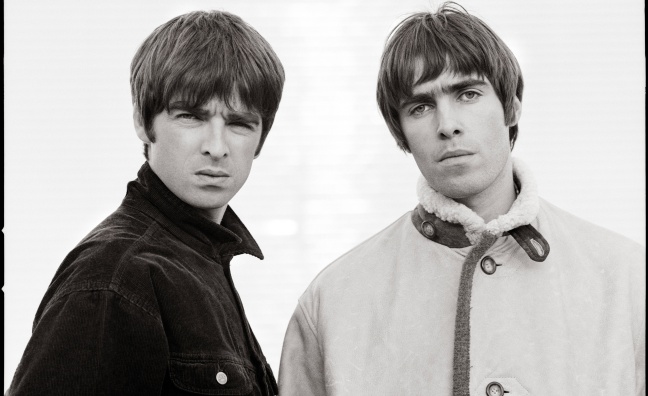Some of the young folk in the Music Week office went to see Supersonic, the new Oasis documentary, this week.
For those of us who lived and worked through the Britpop era, the fact that it’s now the subject of historical record is slightly terrifying.
But for the people who were too young to attend Knebworth, it must seem like the stuff of science fiction.
Supersonic's director doesn't think the lighting will strike twice. And, certainly, right now the chances of ever seeing a phenomenon like Oasis again – i.e. a working class guitar band becoming the biggest cultural force in the country – seem about the same as for Leicester winning the Premier League. Again.
Tastes move on, of course, and there are plenty of musical things happening in the UK right now that are considerably more exciting than standing four miles away from a stage waiting for Ocean Colour Scene to stop quacking on while a bloke in a football shirt is sick on your shoes ever was.
But it’s not so much the sound of the era as the scale. Adele may have finally sold more copies of an album than Oasis did with Be Here Now, but no one queued round the block at midnight to get it.
And we have plenty of massive gigs nowadays, but none that seem to shift the zeitgeist on its axis.
Oasis may have been, in some ways, a happy accident – a perfect collision of characters, tunes and a shifting of the British cultural landscape.
But a similar act today would have to overcome streaming playlists, a global musical hegemony and a lack of agenda-setting media outlets to make a fraction of the impact.
Unless, of course, someone’s already planning the Blossoms biopic for 2036…
Mark Sutherland, Editor
msutherland@nbmedia









